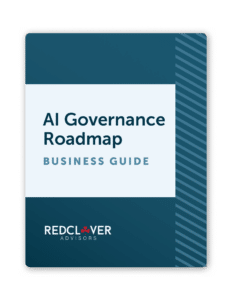The world keeps changing, and our jobs change along with it. Case in point: librarians, one of the original information professionals.
One hundred years ago, librarians had vastly different responsibilities than today. They manually cataloged books, “screened” literature for appropriateness, helped patrons find information in encyclopedias, and were responsible for maintaining a “dignified” public space.
Today, they teach tech skills, host programs for teens, connect community members with resources, and advocate for freedom of information.
Just like the librarian’s job evolved to meet the demands of a digital, hyper-connected society, the role of privacy officers is being reshaped by modern information ecosystems. While we don’t have a century of precedent to look back on, the pace of change is just as dramatic—and arguably, even faster.
So what does this evolution look like in practice, and how can privacy professionals keep pace?
The evolution of the privacy officer role
Rewind the clock 10 years, and privacy officers were heads-down in policy documents, figuring out what GDPR meant for their organizations and how to train employees without putting everyone to sleep. That basic work is being done, and for companies just standing up a privacy program, it’s the bulk of the job.
But the job description is getting longer and longer.
Today’s privacy teams are expected to translate the law into operational practice—creating workflows and building relationships across departments, all while tracking what’s coming around the corner.
AI is adding to the workload. Privacy teams are being asked to evaluate the legal and ethical implications of new tools, weigh in on data governance questions, and define internal guardrails before someone sends out something risky.
The short version? Privacy officers are still working through the basics—but now they’re also fielding questions about what’s next, who’s responsible, and how to avoid missteps when the tech outpaces the policy.
Current responsibilities of privacy officers
One of the biggest changes driving the evolution of privacy officers is the jigsaw puzzle of modern privacy regulations.
Between the many state data privacy laws, new state AI regulations in Utah and Colorado, and other industry regulations, privacy teams have to ensure compliance across the range of regulated activities, which spans:
- Privacy rights
- Data inventories
- Privacy notices
- Vendor risk management
- Regular data inventories to ensure program functions and accuracy
- Ongoing employee training
- Privacy impact assessments
But that’s not all.
Employee privacy has joined the conversation
Historically, privacy programs have focused on consumer data. However, California has provisions in their privacy laws to protect employees, job applicants, and contractors, and other states are reviewing the convergence of AI and HR (e.g., New York City has special rules for AI and privacy when it comes to automated employment decision tools).
That includes everything from how employee biometric data is stored to how HR teams use monitoring tools or performance analytics, especially with the growth of AI.
Tackling emerging tech: AI, automation, and data ethics
AI tools have become mainstream, and automated decision-making is creeping into everyday business operations. Privacy officers face new ethical challenges that can’t be solved with yesterday’s playbook.
Generative AI, predictive analytics, and machine learning tools raise tough questions:
- What data is collected?
- Who has access?
- Is it being used ethically and legally?
- What happens when decisions are made without human input?
And even as we continue to wrestle with these concerns, privacy officers must know how to protect their company from unethical or risky AI practices while encouraging innovation and forward-thinking in their employees. This includes:
- Establishing an ethical framework for AI deployment
- Defining boundaries around data usage
- Ensuring algorithmic transparency
- Aligning AI tools with industry best practices (not just current privacy laws) to encourage sustainable growth and customer protections
- Minimizing the privacy risks of using AI for your business
It’s not always easy, but ignoring these questions isn’t an option. By leading on data ethics, privacy officers can position themselves as essential to risk mitigation and innovation.
Emerging trends for privacy officers to watch
One of the main issues for privacy officers is that there is never a time to rest on one’s laurels. It is a role of change, and you must always look at what’s coming over the horizon.
Over the next couple of years, we foresee some trends as a major focus for privacy officers. (Hint: privacy officers that tackle these head on can position themselves AND their business for success.)
AI governance
We’ve said it before and, yes, we’ll say it again.
AI governance will be one of THE key differentiators for businesses looking to build a competitive edge in the market.
A pragmatic AI governance plan has the potential to:
- Build consumer trust
- Mitigate the risk of lawsuits and negative PR
- Encourage responsible creativity in how employees explore and adopt AI use cases
Data ethics
There’s a difference between legal requirements and the court of public opinion. Companies that navigate responsible data ethics to satisfy both of these viewpoints will stand out in a crowded, skeptical market.
A 2023 Cisco report found that 60% of consumers are concerned about how organizations use their data in AI systems. AI transparency is now a key driver of trust and purchasing behavior. In that same study, over 80% of respondents said they’d be more loyal to companies that are transparent about how they use AI.
Consumers don’t trust companies to use AI responsibly. If you prove them wrong, you can win their hearts, minds, and spending.
Scaling privacy programs (without misstepping privacy laws)
Privacy laws keep coming—state by state, country by country—with different timelines, definitions, and enforcement models. For privacy officers, that means running a program that can take on new requirements without breaking what already works.
The complexity is legal—but it’s also operational. Teams have overlapping laws, limited resources, and internal expectations to contend with, all while keeping programs consistent across jurisdictions. The job isn’t to chase every change. It’s to build something that can handle change without constant rewrites.
AI Governance Roadmap: Business Guide
Our AI Governance Roadmap guides you to success in developing an AI governance program.

Making the shift: strategic opportunities for organizations and their privacy officers
For privacy professionals and business leaders, the question is no longer “Do we need privacy?”
It’s “How do we do privacy better?”
Here are a few strategies organizations can implement to align with the evolving role of the privacy officer:
- Operationalize your privacy: Building a sustainable privacy operation tailored to your business helps avoid patchwork-like processes that keep you stuck in reactive mode instead of taking advantage of trust-building opportunities privacy can provide you.
- Invest in privacy management software: Leverage privacy tech like OneTrust, Ketch, or Osano to automate DSARs, monitor risk, and maintain compliance across jurisdictions.
- Apply data anonymization and masking: Anonymize or pseudonymize data to protect identifiable user information while maintaining utility.
- Incorporate differential privacy techniques into your processes: Add statistical noise to your data sets to safeguard privacy while preserving data utility.
- Use federated learning to train AI models: Encourage data minimization by design for machine learning models.
- Use role-based employee training: Tailor privacy training to support employee buy-in and a culture of data privacy protection.
- Stay on top of the issues: Continue to learn from experts in the data privacy field with podcasts, articles, and even social media to hear the most up-to-date takes on industry changes.
- Build a culture of data privacy champions: Employees can love AI tools and protect customers. Teams can be creative while protecting their business. Through data privacy champions, clear boundaries, and support, you can build a privacy program that takes your business to the next level.
Need a hand?
We’re here to help. Red Clover Advisor’s team of data privacy experts can help privacy officers build solutions that meet your business’s needs.
- Build a future-proof privacy program that keeps pace with regulations, customer expectations, and emerging tech.
- Create an AI governance strategy by putting the right policies and guardrails in place.
- Run a privacy impact assessment before the regulators require it, so you can spot risks early.
- Train your team without putting them to sleep with practical, role-based sessions built for real-world scenarios.
Reach out today to book your free consultation.


